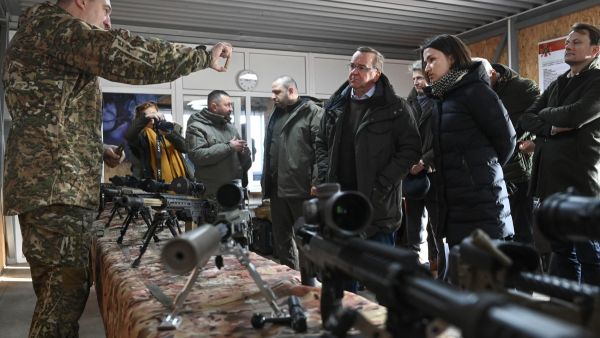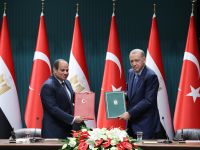ALBAWABA - In a noteworthy development, Germany has achieved a new high in arms and military equipment exports for the year 2023, totaling a significant €11.71 billion. The information comes from the response of the German Ministry of Economy and Climate Protection to inquiries from the Left Party.
The Ministry of Finance's document, submitted to the parliament, reveals that defense expenditure for 2024 is expected to witness an increase of at least 30 billion shekels compared to the previously approved spending plan of 513 billion shekels, reaching a total of 562 billion shekels (approximately €155 billion).
Ukraine emerges as the leading recipient of Germany's arms and military equipment sales this year, with Berlin granting approval for sales amounting to €4.15 billion. This comes in the context of the ongoing conflict between Ukraine and Russia.
The approved arms exports to Ukraine include a range of military equipment such as Leopard 2 tanks, Patriot air defense systems, Gepard anti-aircraft tanks, ammunition, PzH howitzers, Stinger missiles, hand grenades, helmets, and vehicles.
Germany's approach to arms exports is consistent, treating Ukraine similarly to other nations such as Japan, Australia, South Korea, and NATO member countries.
The German government's decision to approve arms exports to other third-party countries is also notable, with a total value of €1.76 billion. Among the recipients are Israel, the United Arab Emirates, and Saudi Arabia.
According to information released by the German Ministry of Economy and Climate Protection on November 8, arms and military equipment sales to Israel have surged nearly tenfold in the span of 10 months, reaching €303 million. This substantial increase follows the approval of 185 applications from Israel in the initial weeks of the Israel-Palestine conflict.
This development is particularly significant given the promises made by the government that came into power in 2021, emphasizing restrictions on arms exports.
Even without factoring in Ukraine, the German government has given the green light to arms and military equipment exports exceeding €7 billion this year, surpassing previous instances under former Chancellor Angela Merkel's administration.
In the midst of coalition negotiations, the government, led by the Greens, Social Democratic Party, and Free Democratic Party, aimed to curtail arms exports and introduce a control law to oversee these activities.
Led by the Green Party, the Ministry of Economy and Climate Protection has been actively working to strengthen Germany's arms export control laws, emphasizing transparency.
Chancellor Olaf Scholz, responding to the Russia-Ukraine War as a pivotal moment, declared the country's commitment to meeting NATO's goal of allocating "2% of GDP for defense expenses" after the war's onset. In line with this commitment, an additional €100 billion has been earmarked to equip the Bundeswehr with modern weaponry.










